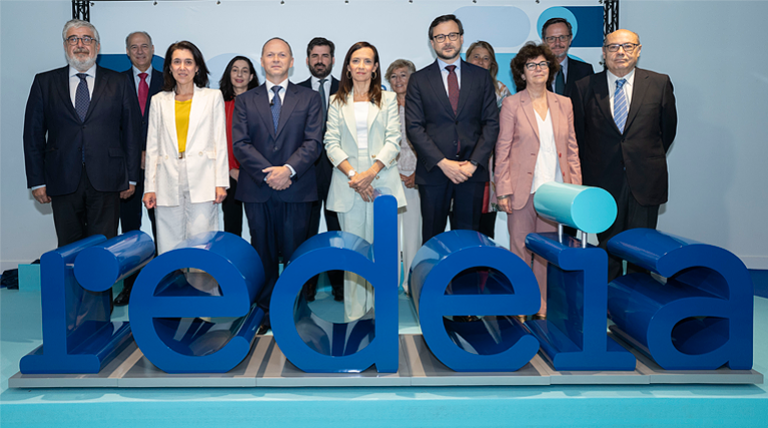We are a global operator of essential infrastructure
Red Eléctrica de España promotes and sponsors a study on the conservation and expansion of the Egyptian vulture (Neophron percnopterus) that will favour the unprecedented knowledge of this necrophagous bird in order to reduce the causes of their population decline in areas of the Iberian Peninsula where it is experiencing a fall.
The Conservation Biology team of the University of Barcelona (UB) is managing and coordinating the project. The team, led by Professor Joan Real of the Department of Animal Biology and the Biodiversity Research Institute (IRBio) of the UB, has extensive experience in research on endangered species.
Currently, the Iberian and European Eqyptian vulture populations are in decline and are endangered, including those in Spain. Relevant populations in Andalusia, Castille and Leon and the Ebro valley have suffered drastic declines, and in several areas have disappeared altogether. However, in Catalonia, although their presence in the foothills of the Lleida Pyrenees was quite low during the 1980s, this species is now expanding as a result of having colonised new areas where their presence was previously non-existent.
The study of the Egyptian vulture will be conducted throughout 2014 with the aim to learn about the biological, ecological and human factors that influence the positive development of this species in the central and eastern region of Catalonia, and to define the priority lines of action for the conservation of the Iberian populations that are endangered.
One of the main objectives of the study will consist of a detailed census of the population in the provinces of Barcelona, Girona and the eastern part of Lleida, especially the location of new territories colonised by the species. This information, along with that collected over the past three decades, will allow a demographic and feasibility analysis of their populations to be carried out and will enable the factors that influence their expansion to be determined and, consequently, allow conservation protocols for other endangered and declining populations in the rest of the Iberian peninsula and Europe to be established.
A key asset of this programme is the close collaboration and positive synergies between researchers at the University of Barcelona and those of naturalistic entities with high popular support such as the Grup de Naturalistes d’Osona, as well as researchers from the following Natural Parks of the Government of Catalonia: Montserrat, the Garrotxa Volcanic Zone, the Cadí-Moixeró, as well as from the Natural Park of Sant Llorenç del Munt (under the City Council of Barcelona). Also, closely collaborating on the ‘in the field’ tasks is the Mountain Support Group of the Rural Agents Corps (‘Grupo de Apoyo de Montaña del Cuerpo de Agentes Rurales’) of the Government of Catalonia. Moreover, the City Council of Barcelona and the Government of Catalonia will provide technical and administrative support to enable the project to be carried out.
The project on the conservation and expansion of the Egyptian vulture is an initiative that responds to the commitment undertaken by Red Eléctrica de España to collaborate with regional governments for sustainable economic and social development, the defence and respect for the environment, the promotion of progress, culture and social well-being with the aim to create permanent value in the areas where the Company operates.
The Press Office of Red Eléctrica publishes all written and visual information via the Twitter account @RevistaREE.
Also on Facebook through the account Revista Entrelíneas.














